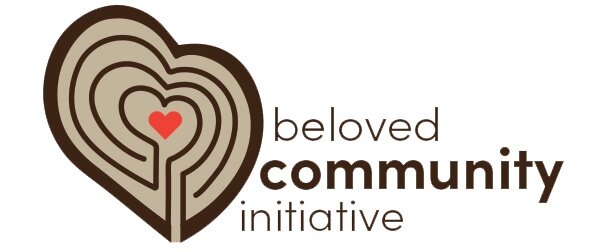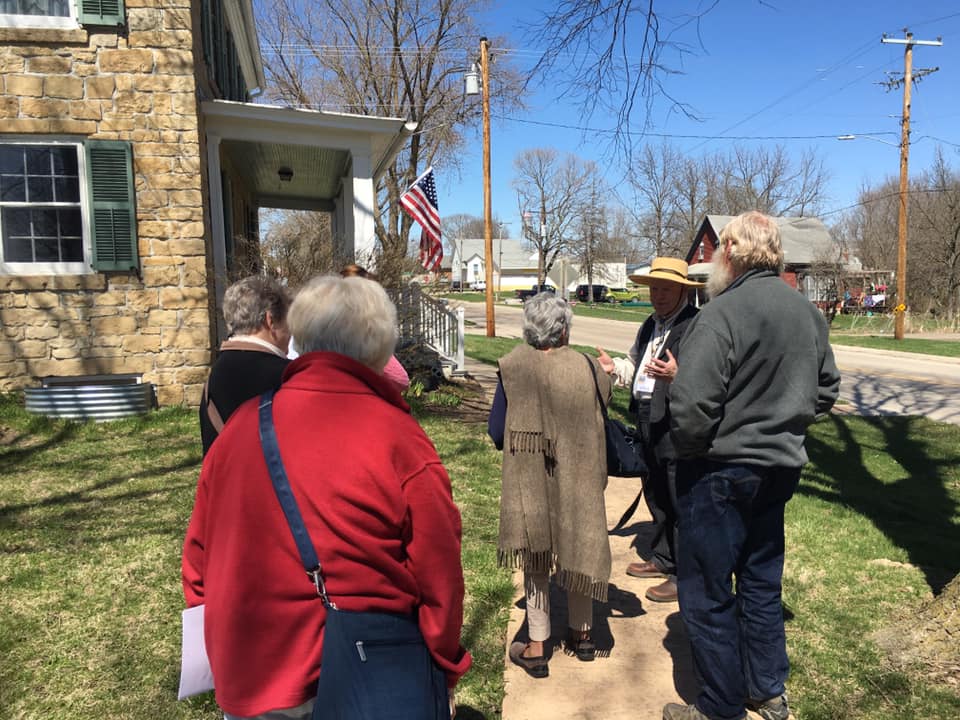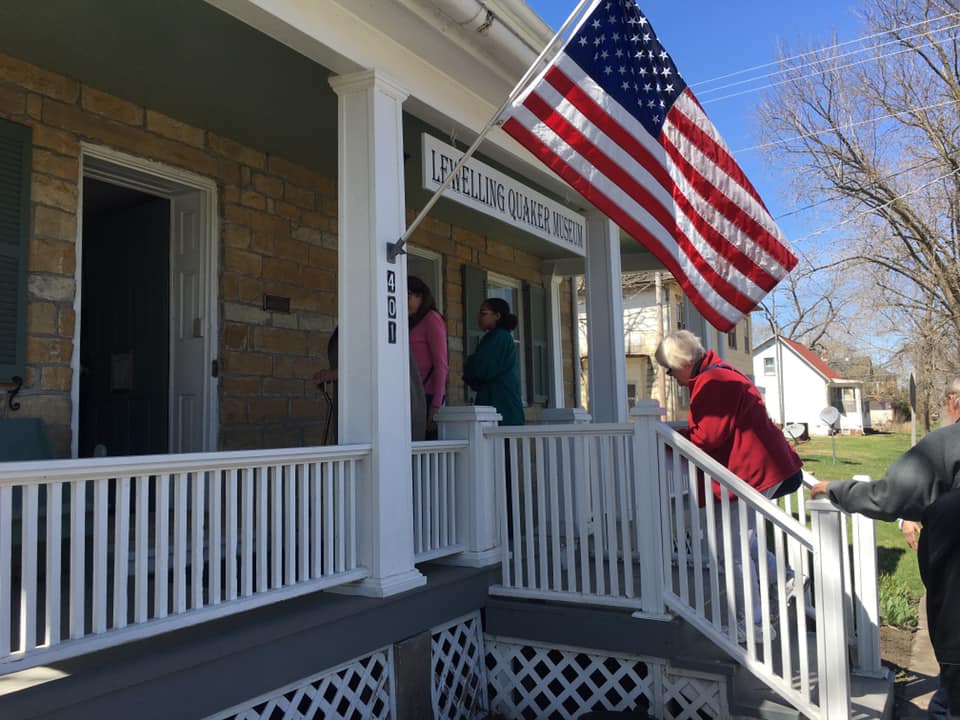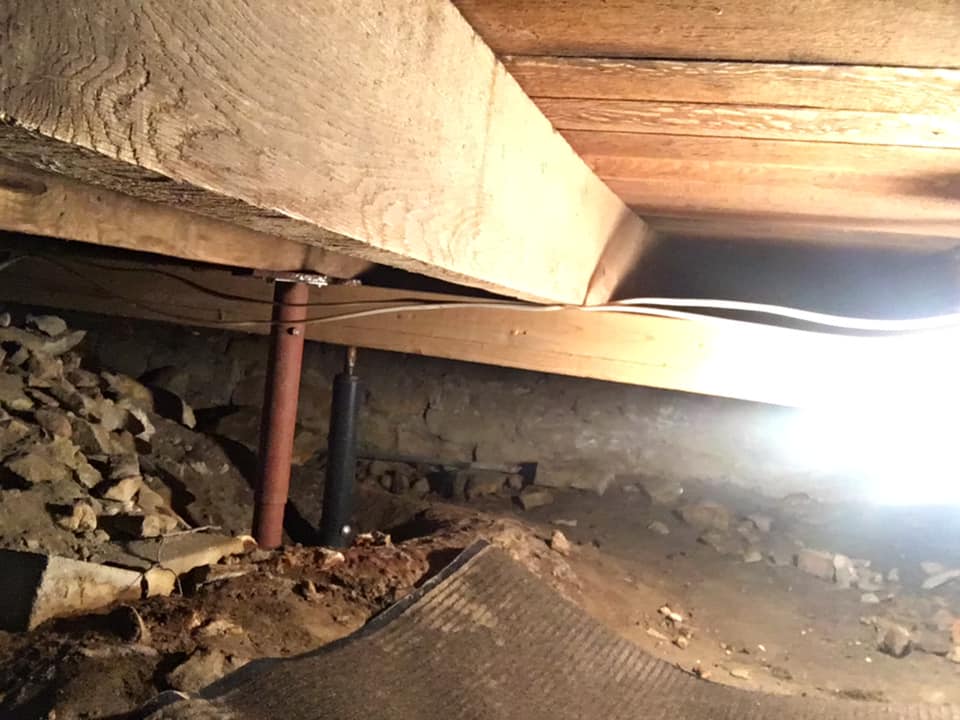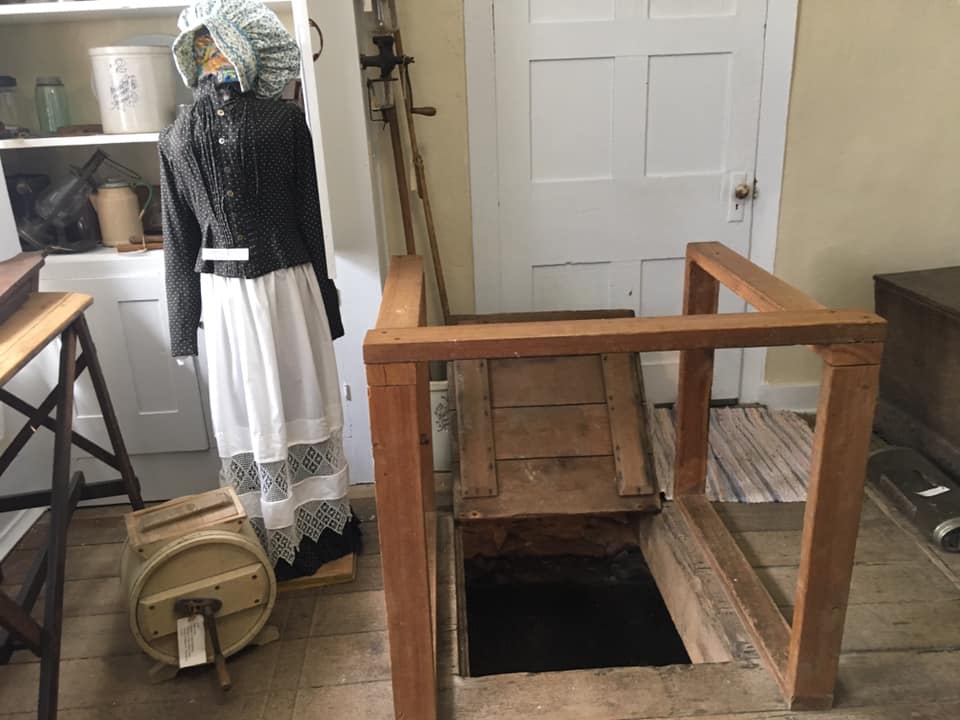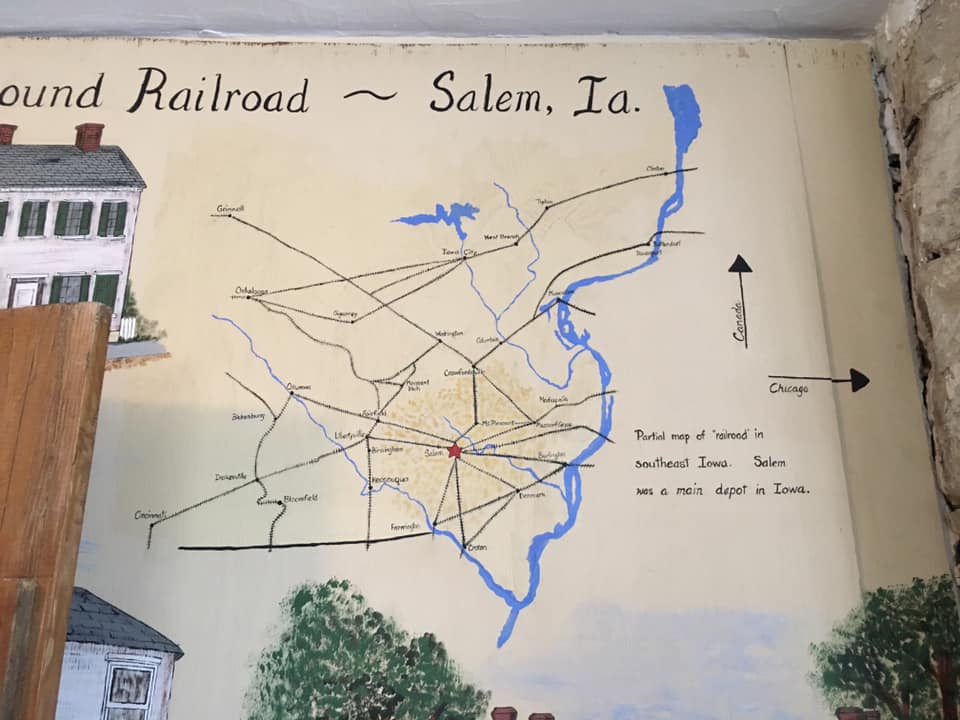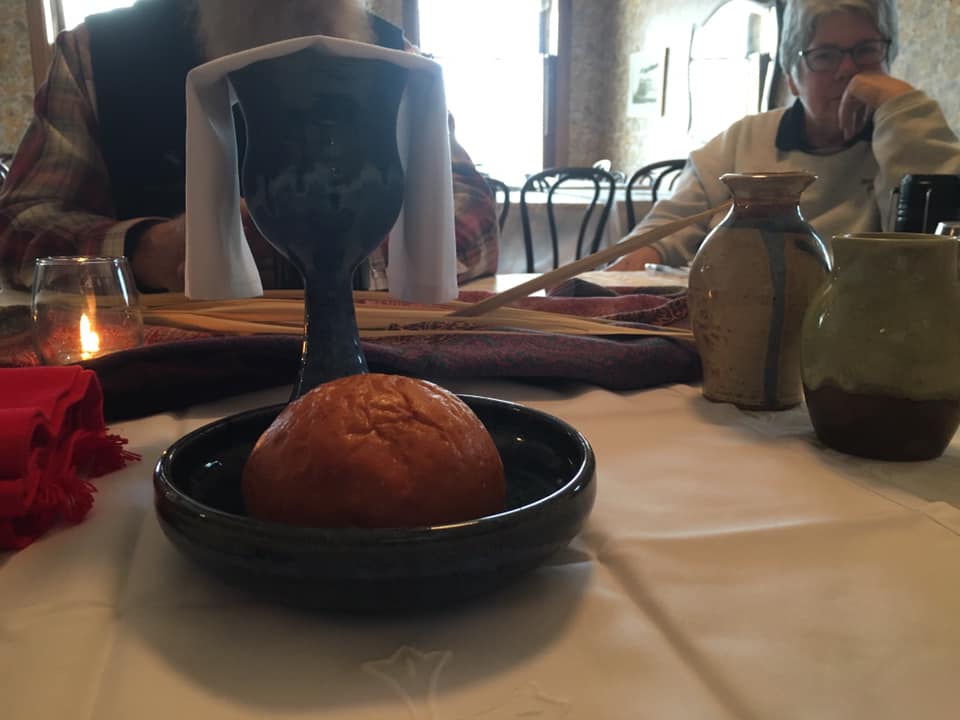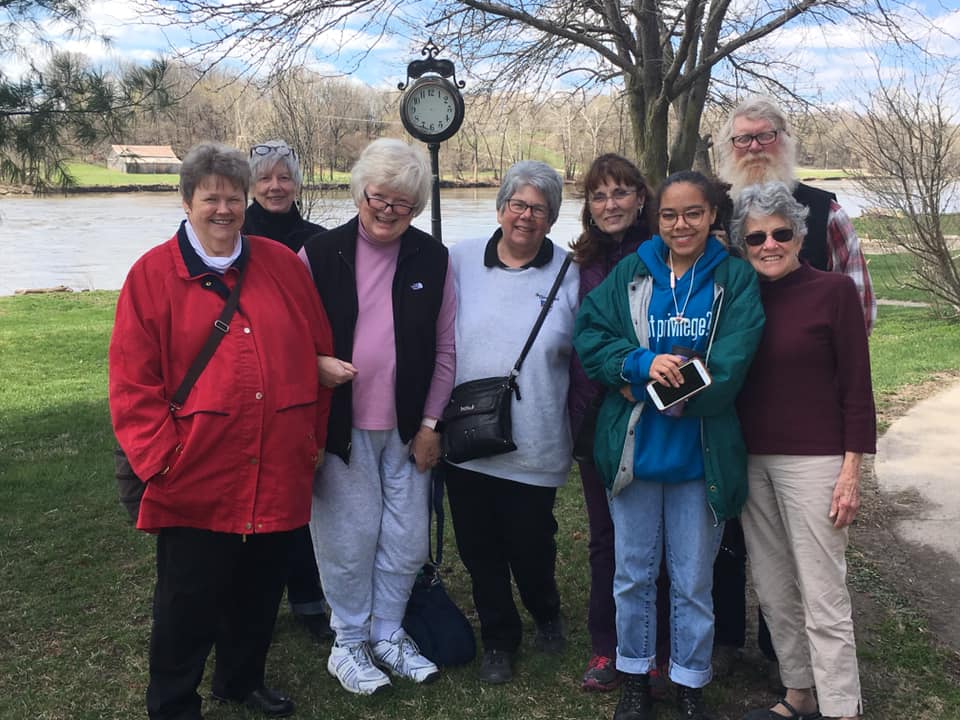Truth-telling along the Freedom Trail
Saturday April 13, 2019 began with the promise of a beautiful spring day full of sun and hope. Nine pilgrims gathered at Trinity Episcopal Church in Iowa City for an introduction to the Underground Railroad in Iowa Pilgrimage. Sean Donaldson from the African American Museum in Cedar Rapids helped us understand some of the myths around the Underground Railroad as well as the historical events that led to the need for and use of the Underground Railroad.
The small group left Iowa City and traveled south to Salem, Iowa, journeying deeper into our perceptions about the enslavement of people for economic as well as power purposes. Visiting actual spaces dedicated to sanctuary reinforced the incredible belief in freedom held by many and how much their religious faith influenced this belief and its call to action. Prior to the Civil War in United States history, there was a very forceful political power dedicated to keeping the institution of slavery alive in these United States. Thisdedication to enslavement reinforced the use of financial and physical power against abolitionists and people of color who were caught in the system. Our visit to the Lewelling House in Salem and to Keosauqua offered us the opportunity to explore the risks some would take for a belief in freedom.
Iowa was a fairly new state at the time of the growing issues around the enslavement of black people, and experienced firsthand both sides of the issues. Bordering Missouri, a state practicing enslavement, Iowa and its frontier towns were thrust into the divides that still exist today around the concept of freedom. While we can celebrate the risks and accomplishments of Iowans in this struggle, we also recognize the many ways people chose to either not participate in abolition or to actively oppose freedom for all. This realization led to an understanding of the conflicts that occurred because of these divides. Reflection on the two processions into Jerusalem—one by human creations of power and one by Jesus—brought us closer to understanding the enslavement issues in our current culture.
Pilgrims were asked to reflect on their own understandings around the issues of enslavement and how it appears today in our lives. There may be times when it feels unsafe to express one’s views, however, that hesitancy did not seem to last too long for us and by the end of the time together, we made our commitments to ongoing work toward dismantling racism in the way that fits for each of us.
The Beloved Community Initiative (becomingbelovedcommunity.org) looks forward to offering this pilgrimage again in the Spring of 2020 and hopefully will be able to build another similar pilgrimage in the western part of Iowa in the Fall of 2019. There are places in the western part of Iowa that were extremely active in moving freedom seekers along the Underground Railroad toward Canada.
Ms. Ellen Bruckner serves as Diocesan Ministry Developer
